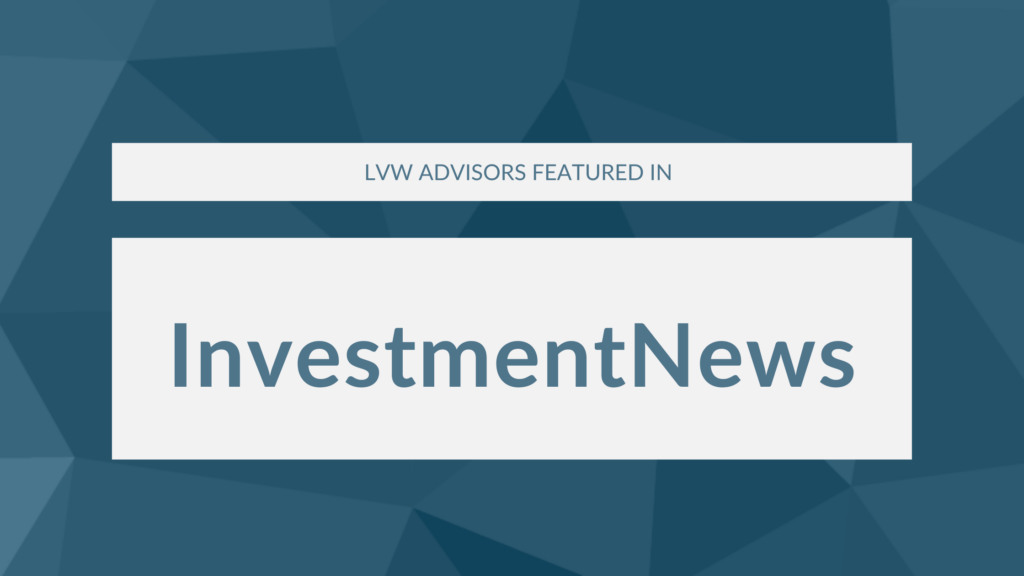Welcome to the summer edition of LVW’s The Serious Investor.
The U.S. economy slowed but grew faster than expected during the second quarter. The Atlanta Fed’s GDPNow projection recently estimated GDP growth of 2.3% between April and June,1 which would follow a 2% expansion in the first quarter. Manufacturing contracted year-over-year,2 but hiring was resilient, with private sector employers adding over 900,000 jobs between April and June. International economies weakened, as China contended with high debt levels and a struggling real estate sector and the European Union fell into an unofficial recession after two consecutive quarters of negative GDP growth.3
U.S. inflation continued to cool, with the Consumer Price Index falling to an annual rate of 4% in May, down from 9.1% in June 2022.4 Softening inflation led the Federal Reserve to pause its tightening campaign in June after hiking its target short-term interest rate five percentage points between March 2022 and May 2023. Fed Chair Jerome Powell warned that the fight against inflation was far from over and could take years, as factors including ongoing tightness in the labor market could make it hard to reduce inflation further.
The S&P 500 gained 8.3% for the quarter, powered by outsized gains in a handful of large growth stocks amid excitement about artificial intelligence. By contrast, the equal-weighted S&P 500 returned 3.5% for the quarter. Stock market gains broadened slightly in June. In May, concerns about policymakers’ ability to reach an agreement to raise the debt ceiling spurred turbulence in the markets, but volatility subsided to postpandemic lows after the two parties hammered out a deal.5 Non-U.S. stocks stalled in the second quarter after rallying previously. The MSCI All Country World ex-US Index gained 0.5% in the second quarter. India, Brazil and Japan posted strong gains, while Chinese stocks fell and European indices were roughly flat.
Bond values declined as interest rates rose. The yield curve ended the period significantly inverted: Treasury securities with maturities of one year and shorter yielded well above 5% at the end of the period, while Treasurys five years and longer yielded around 4%.
Our investment discipline considers markets through the lenses of valuation, growth and liquidity. Our analysis leads us to the following conclusions as of early July:
Valuation: U.S. stocks look expensive
The S&P 500 ended the quarter at a price-to-earnings (PE) ratio of 19.1 based on forward earnings. Research from Goldman Sachs notes that the benchmark’s current PE is in the 90th percentile of “expensive” based on its range since 1975. Stocks’ forward returns from comparable levels have been well below the historical average. Valuations of U.S. small cap stocks, developed non-U.S. stocks and emerging markets are more reasonable relative to history.
Growth: High rates weigh on earnings
U.S. large cap stocks have continued to perform well in part because the largest stocks have continued to grow both revenues and profits. Growth elsewhere continues to slow under the weight of higher interest rates globally, which have significantly increased the cost of capital. We expect earnings to remain relatively flat over the next 12 to 24 months. Profit margins will likely also be tested in the coming quarters.
Liquidity: Expect a decline following a second-quarter increase
Interventions to address the mini banking crisis in the U.S. caused liquidity to increase in the second quarter, despite higher rates and the Fed’s efforts to reduce its balance sheet. The rise in liquidity may help explain the NASDAQ’s second-quarter rally. Going forward, real interest rates well above 1% and the deeply inverted yield curve are both restrictive. In addition, year-over-year “M2” money supply growth is negative for the first time in over 60 years.
Summary
Equity markets have performed relatively well in the first half of the year, but we expect returns to be subdued from here.
With high valuations, particularly in the U.S. equity market, relatively low profit growth and an alternative in attractive cash rates or interest rates, we think stock index prospects remain relatively benign from here and expect equity markets to trading to be more range-bound. In the words of Peter Oppenheimer, chief global equity strategist and head of European macro research at Goldman Sachs Research, “Equity markets have entered the late optimism phase of a typical cycle, with this cycle exhibiting ‘fat and flat’ returns. Growth is really the central driver and this year we’ve seen very little in the way of underlying profit growth.”
We appreciate your trust and confidence in LVW.
Download a copy of this newsletter
1 https://www.atlantafed.org/cqer/research/gdpnow
2 https://www.bls.gov/news.release/empsit.nr0.htm
3 https://www.cnn.com/2023/06/13/investing/premarket-stocks-trading/index.html
4 https://www.bls.gov/charts/consumer-price-index/consumer-price-index-by-category-line-chart.htm
5 Chicago Board Options Exchange’s CBOE Volatility Index
Disclaimer: This material is provided by LVW Advisors (“LVW” or the “Firm”) for general informational and educational purposes only. Investing involves risk, including the potential loss of principal. Past performance may not be indicative of future results, and there can be no assurance that the views and opinions expressed herein will come to pass. No portion of this commentary is to be construed as a solicitation to effect a transaction in securities, or the provision of personalized tax or investment advice. Certain of the information contained in this report is derived from sources that LVW believes to be reliable; however, the Firm does not guarantee the accuracy or timeliness of such information and assumes no liability for any resulting damages. Any reference to a market index is included for illustrative purposes only, as an index is not a security in which an investment can be made. Indices are unmanaged vehicles that serve as market indicators and do not account for the deduction of management fees and/or transaction costs generally associated with investable products. To the extent that this material concerns tax matters, it is not intended or written to be used, and cannot be used, by a taxpayer for the purpose of avoiding penalties that may be imposed by law. Each taxpayer should seek independent advice from a tax professional based on his or her individual circumstances. The information in these materials may change at any time and without notice.
LVW is an SEC-registered investment advisor that maintains a principal office in the state of New York. This registration does not constitute an endorsement of the firm by the Commission, nor does it indicate that the adviser has attained a particular level of skill or ability. The Firm may transact business only in those states in which it has filed notice or qualifies for a corresponding exception from applicable notice filing requirements. Additional information about LVW is contained in the Firm’s Form ADV disclosure documents, the most recent versions of which are available on the SEC’s Investment Adviser Public Disclosure website, www.adviserinfo.sec.gov.









